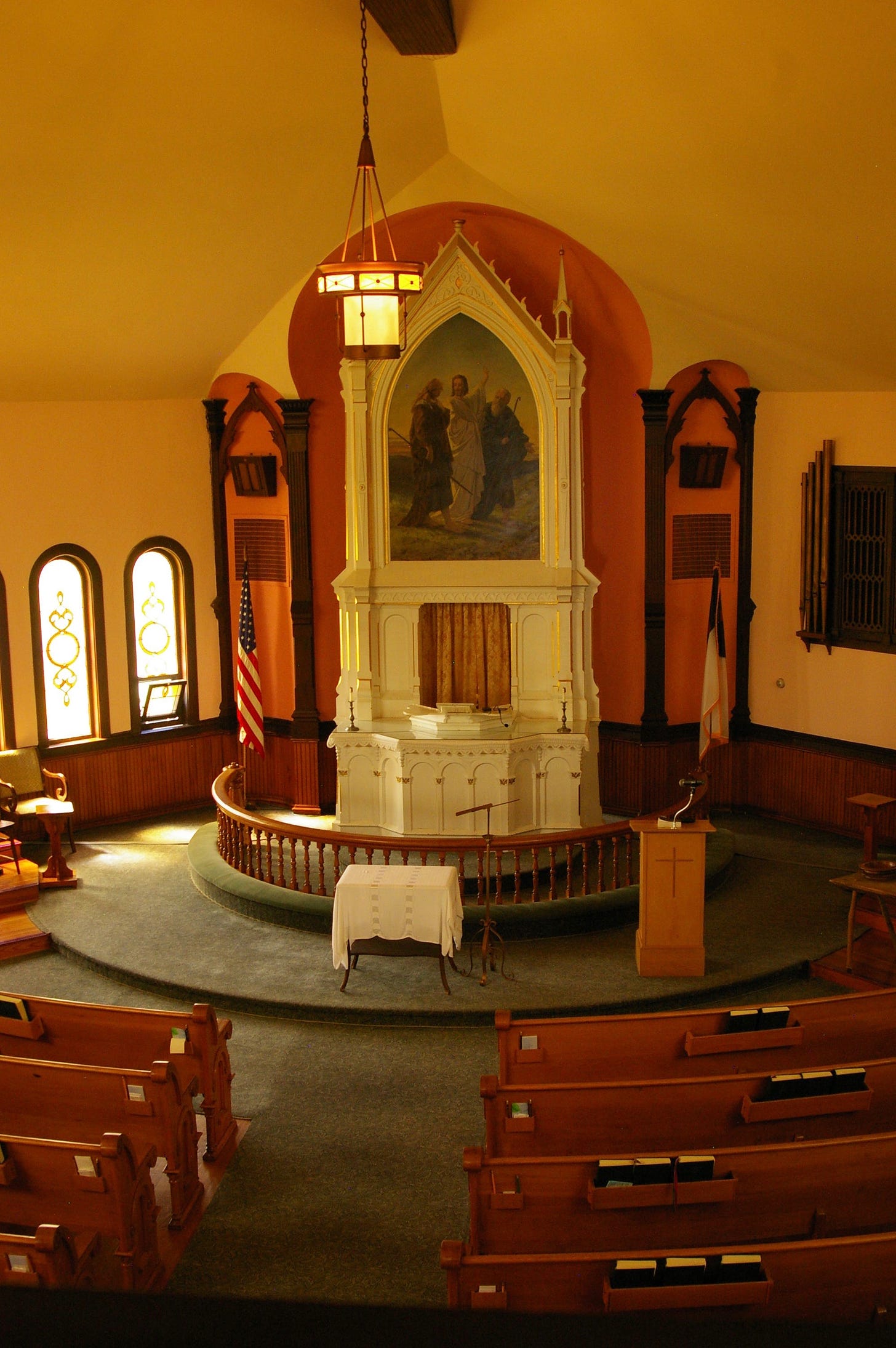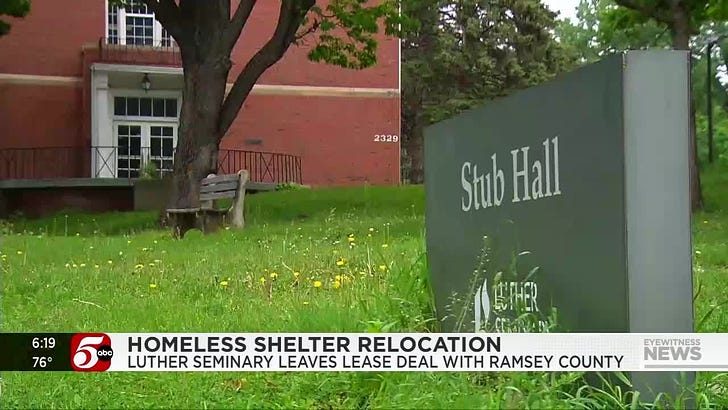
Discover more from Lutheran Confessions
I guess we can start with statistics: a Barna study last decade indicated conservatives attend weekly worship far more frequently than liberals (62% vs. 35%); a more recent survey by Pew indicates 50% of conservatives attend worship while only 22% of liberals do; the younger generations skew liberal and also are more likely to be religiously unaffiliated; or if you look at political parties, about 79% of Republicans self-identify as Christian whereas only 55% of Democrats do.
I begin with the statistics because, to a large degree, there is likely overlap between progressive political perspective and progressive religion. So the markers of these large sociological groups (political party, etc.) likely reflects accurately the general sensibilities of the smaller group (almost a Venn diagram) that is both progressive and “church-going.”
In other words, we can begin with the assumption that, statistically-speaking, worship is simply a lower priority for progressives than other Christian groups.
That established, the interesting question becomes: Why? I answer:
Many progressives are leery of Christian practices like worship precisely because so many conservatives do worship. I guess this is not unlike the way many Lutherans abandoned weekly Eucharist because it looked to Catholic and they didn’t want to appear to be Catholic to a wider American community that harbored anti-Catholic sentiments.
Many other progressives are recovering from a very bad and harmful history with the church. They are processing religious trauma and find it very difficult to even enter a church building, let alone worship.
Other progressives are, in somewhat contemporary terminology, deconstructing, and as part of that spiritual work, are finding participation in worship complicated by their newfound skepticism around creeds, dogma, tradition.
However, I think it is an additional factor that is the main one, and it’s this:
Many progressive Christians are simply not convinced weekly worship is crucial to Christian life. They’re agnostic about it.
Progressive Christianity is much more “this-worldly” than other forms of Christianity, focused on the immanent frame and action in the world. Worship (which is assumed to be primarily about the transcendent frame and other-worldly focused) to those of this perspective may simply be perceived as (at best) a waste of time and (at worst) a distraction from the weightier matters of social justice and love of neighbor.
Scripture itself includes some of this kind of skepticism: the prophets were concerned that Israel’s hyper-focus on “right worship” distorted from a focus on “right living.” For example:
Amos 5:21-24
21 I hate, I despise your festivals,
and I take no delight in your solemn assemblies.
22 Even though you offer me your burnt offerings and grain offerings,
I will not accept them,
and the offerings of well-being of your fatted animals
I will not look upon.
23 Take away from me the noise of your songs;
I will not listen to the melody of your harps.
24 But let justice roll down like water
and righteousness like an ever-flowing stream.
Progressivism, focused as it is on justice, will resonate with this prophetic sentiment quite strongly. You can find the same theme in the New Testament in James, where he writes, “Religion that is pure and undefiled before God, the Father, is this: to care for orphans and widows in their distress, and to keep oneself unstained by the world.”
If we think of the life of faith as movement, an ebbing and flowing, a testimony and counter-testimony, then indeed I think it is quite reasonable that some Christians, having witnessed the abuses of the faith and the specific complicity of Christian worship in those abuses, would distance themselves from any forms of corporate worship.
But the Scriptures (to stick with them for just a bit longer) offer a counter-response to this theme, illustrated especially well in the familiar Psalm 51. In that Psalm, the Psalmists sings, “For you have no delight in sacrifice;
if I were to give a burnt-offering, you would not be pleased.”
But then that isn’t the end of the Psalm. Instead, after the psalmist makes things right, through repentance and reform of life, they are then free to sing as the concluding verse of the Psalm, “then you will delight in right sacrifices,
in burnt-offerings and whole burnt-offerings;
then bulls will be offered on your altar.”
Since I’m writing about ancient texts, I invite anyone reading these citations of the Psalms to fill in for “bulls on your altar” a more general “worship practices.” I’ll be back around to this in a bit. But the point remains, Christianity intrinsic to itself includes some equipment for problematizing worship. It reminds us that worship for its own sake, or worship detached from the needs of the world, or worship that steals from the world, is unacceptable to God. It at the same time indicates that if the needs of neighbor-love and justice are met, then God can and does in fact welcome “right worship.”
Worship and justice, in this sense, are not opposed. They simply have a certain kind of relationship, with worship being “right” only in the context of seeking to make the world “right” first.
—
So now let’s ask ourselves, what is worship, generally speaking? That’s a big question, but I think we are up to the task. Worship at its most basic is praise. It’s pausing long enough to say to the one worthy of worship, “You’re awesome!”
Christian worship has, historically, been formed by including a few additional traditions. First, the worship in which the one worthy of saying, “They’re awesome!” is praised includes at least some statements of who is being worship. That’s the whole point of creeds, a lot of our hymns, the fancy endings and beginnings of prayers, and even the reading of Scripture in worship itself. All of these practices help the community name that One.
Christian worship is also about relationship with that One, so it includes practices that allow space to create that relationship. Prayer is the primary mode for this, but so is silence. Finally, worship is a two-way relationship, so Christians understand that in worship the One “talks back.” Christians in worship anticipate hearing God speak through the texts, through the sermon, receiving this God in the meal, and more generally encountering God’s Spirit.
This is what worship is. There are other ways to talk about worship, probably lots more, but this gives us a good starting point.
Christian worship in the United States has introduced some complications here. The historic liturgies of the church, though still practiced by many denominations, gave way on the frontier to some forms of worship that were quite new. Frontier worship itself had it as a kind of goal to stir up the participants into a kind of spiritual awakening in order to accomplish conversion. This mode of worship, the Frontier style, was then also influenced by movements in early America of the traveling popular speakers. Think Ralph Waldo Emerson. As a result, complex church spaces that had once included multiple altars and spaces for devotion coalesced into “auditoriums” all focused on the one speaker.
A church I previously served Wisconsin illustrates this shift. The architect did something entirely unique: they put the pulpit right in the center of the altar. Churches around the country had gone to a more auditorium seating design, but the Lutheran architect couldn’t quite bring himself to go that far, there had to be an altar, but he put the pulpit right in the middle of the altar.
This brings us around to “what is worship” a final time. Perhaps for the average church-goer in 2022, worship is an auditory event, a chance to “hear” things, to hear the band play, to hear a sermon. I think it’s entirely possible the majority of those attending worship on a Sunday morning are focused (for better or worse) primarily on it as either a religious duty or an event in which they’ll receive something (a helpful word) much more than as an opportunity to “praise.”
—
All of this then leads me to the title question: What, to a progressive, is worship?
Let’s start with a few categories we haven’t yet considered for the meaning of Christian worship. First, we might think of worship as community organizing. Progressives believe in organizing in order to work for the good of ordinary people, the planet, and in particular, the poor. Since worship is still the most unique kind of event that includes every generation, every person from every walk of life, it would make a lot of sense for progressives to think of worship as the primary space in which they can organize for good.
Second, if progressives really believe that a part of leaning Left is unlearning the propaganda of the right and continually doing the critical work necessary for justice, then worship is a place, in fact one of the best places, to learn and grow. C.S. Lewis famously said of prayer, “I pray because I'm helpless. I pray because the need flows out of me all the time, waking and sleeping. It doesn't change God. It changes me.” So too worship, even if it does nothing “for” God, it is an event in and through which we all can be changed.
I might add, on this point, that worship is unique in many ways, but one way it is unique is the media it stewards, from singing to preaching to prayers arising from the people. These are practices difficult to find in almost any context. Progressive churches can do a lot more work to ensure that the content of the hymns, the words of the prayers, the practices included in worship, are as much influenced by progressive sensibilities as anything else, but it is highly doubtful whether progressive church or progressive Christianity can benefit from dropping these practices. The point is not to cease the practices, but to change and recontextualize them.
Third (and I cannot emphasize this point enough), worship serves as an opportunity for encountering the wonderful in the every day. Worship, precisely because it is directed toward an “Other,” facilitates discovering the ordinary is revealed to be the extra-ordinary. The normal light of every day experience takes on an extra glow. It is like the Gerard Manley Hopkins poem God’s Grandeur:
The world is charged with the grandeur of God.
It will flame out, like shining from shook foil;
It gathers to a greatness, like the ooze of oil
Crushed. Why do men then now not reck his rod?
Generations have trod, have trod, have trod;
And all is seared with trade; bleared, smeared with toil;
And wears man's smudge and shares man's smell: the soil
Is bare now, nor can foot feel, being shod.
And for all this, nature is never spent;
There lives the dearest freshness deep down things;
And though the last lights off the black West went
Oh, morning, at the brown brink eastward, springs —
Because the Holy Ghost over the bent
World broods with warm breast and with ah! bright wings.
In other words, although progressives are correct to concern themselves with the abuse of worship, the way it might be used for distraction or self-justification, they can nevertheless remember that worship rightly construed serves precisely some of the ends most valued by progressives.
Finally, I might add: those organizing for social justice are going to wear themselves out. Although worship may not be universally perceived as “rest”—in fact since the most common reason I hear for why people don’t join corporate worship Sunday morning is related to exhaustion—it takes place on the day of rest for a reason. Worship is a profoundly restful practice. It’s recuperative, healing, therapeutic.
A progressive who worships might think of it as a nap before the struggle, as the space in which the slogans to be chanted can be written, as the necessary pause and meet up space for those committed to alternative community.
These are pretty idealistic and lofty goals for what progressive worship might be, but then that’s progressive also: a dissatisfaction with the status quo that drives to new action.
I don’t think Christian progressivism abandoning worship will ever get us where we are called to go. It’s part of the breathing we do as community. Maybe that’s actually the main way to answer the original question: to the progressive, worship is a deep breath.
Subscribe to Lutheran Confessions
Reflections from a progressive Lutheran pastor in the South.






